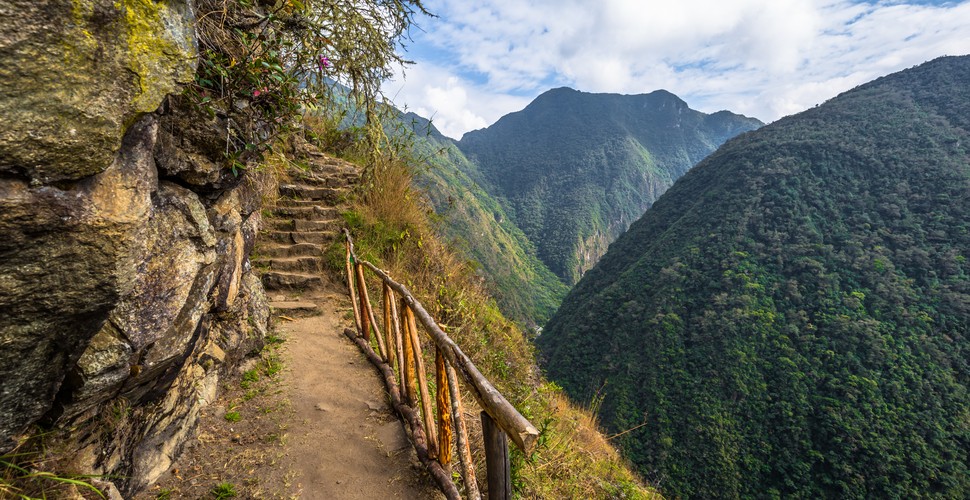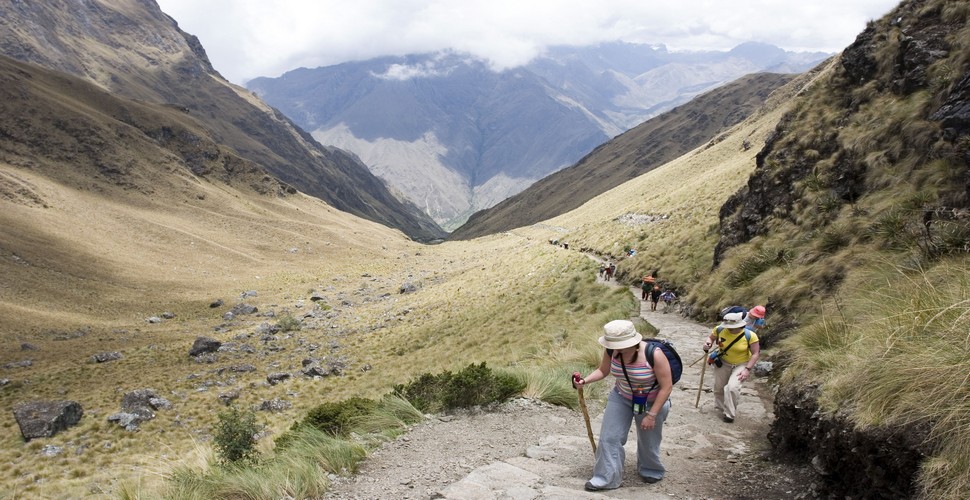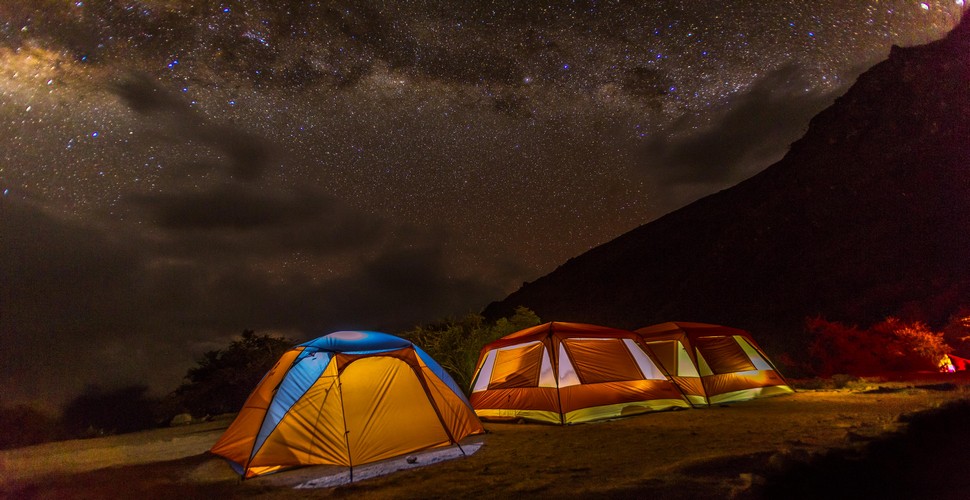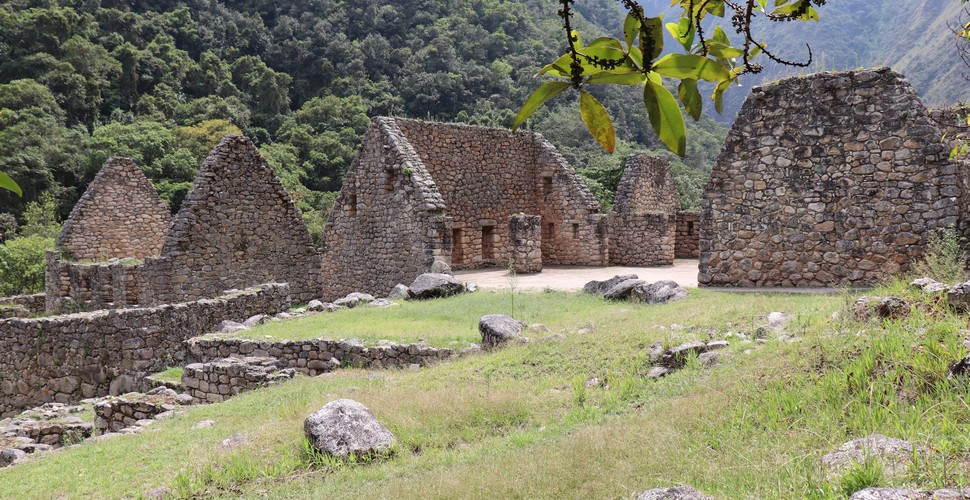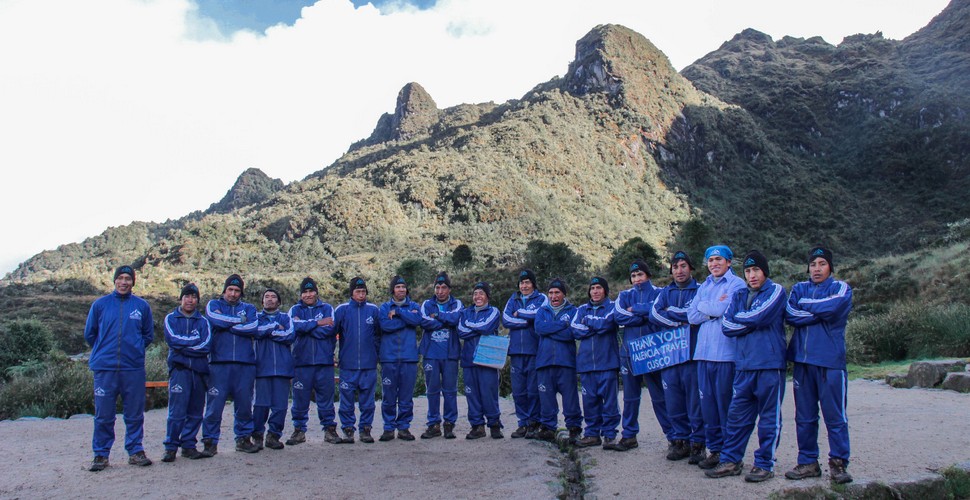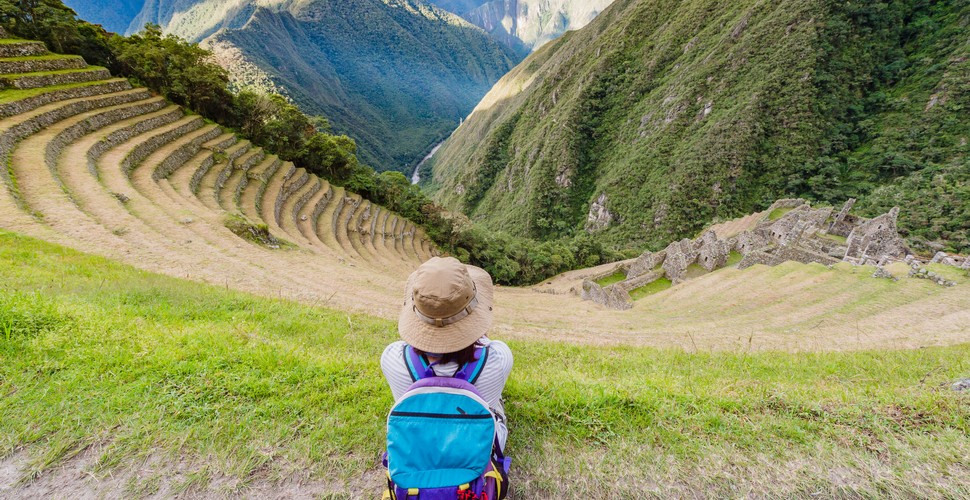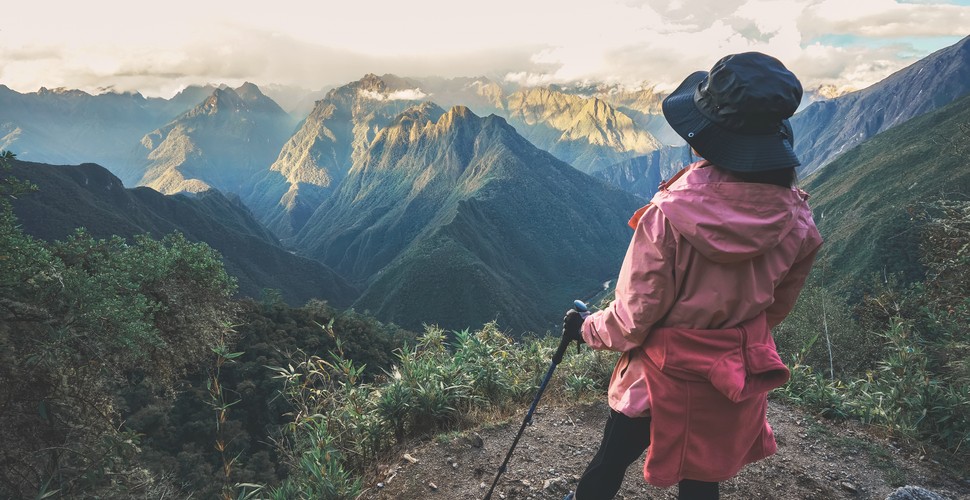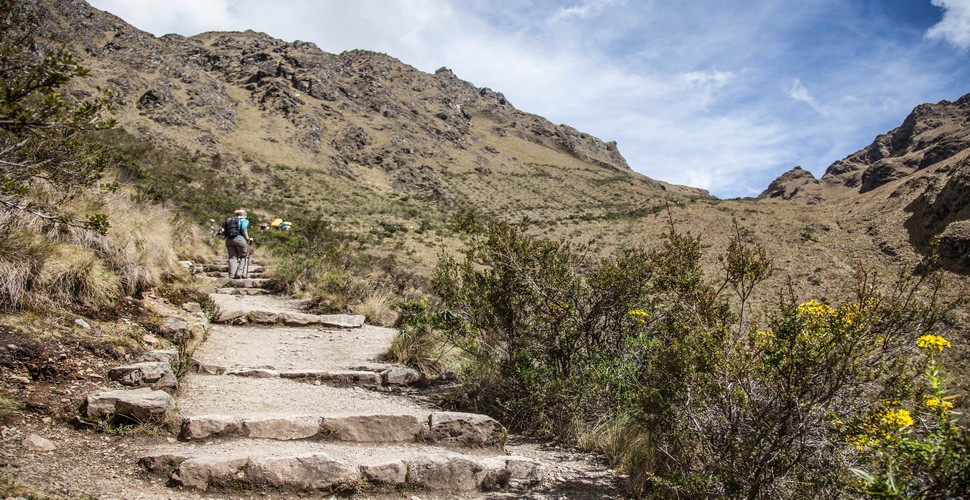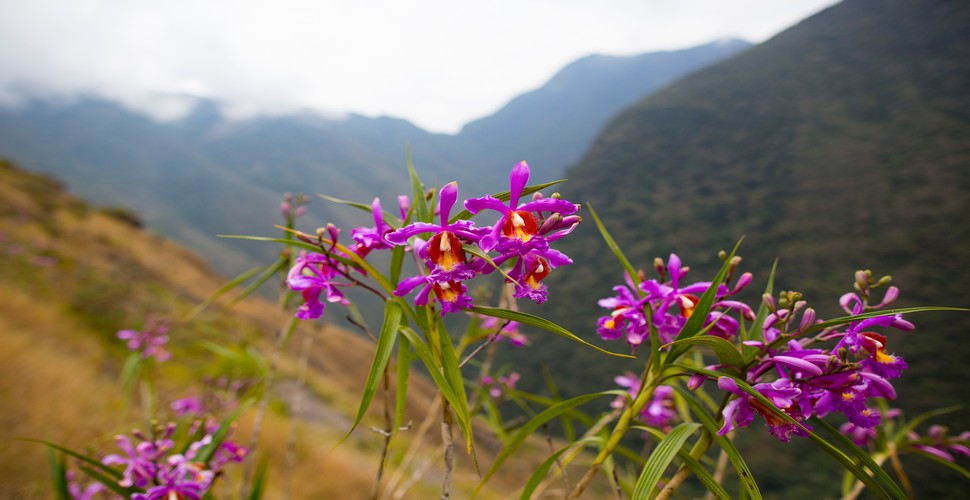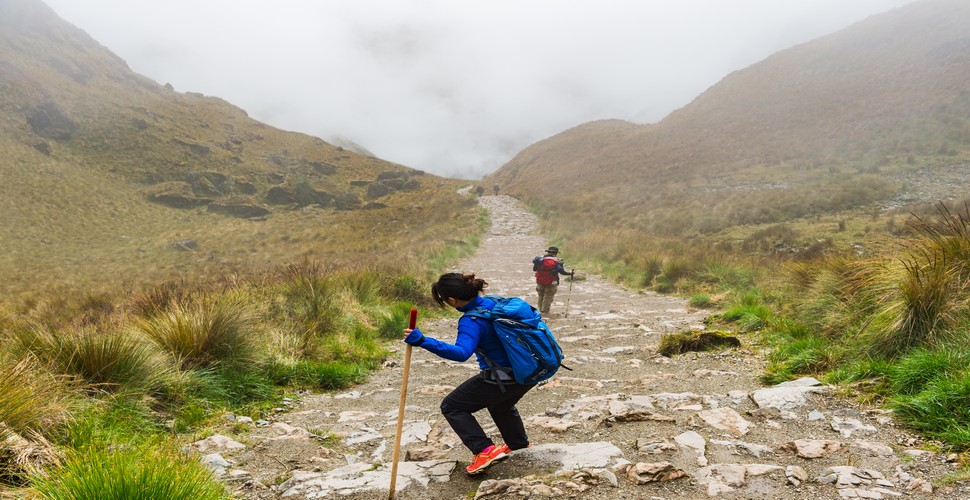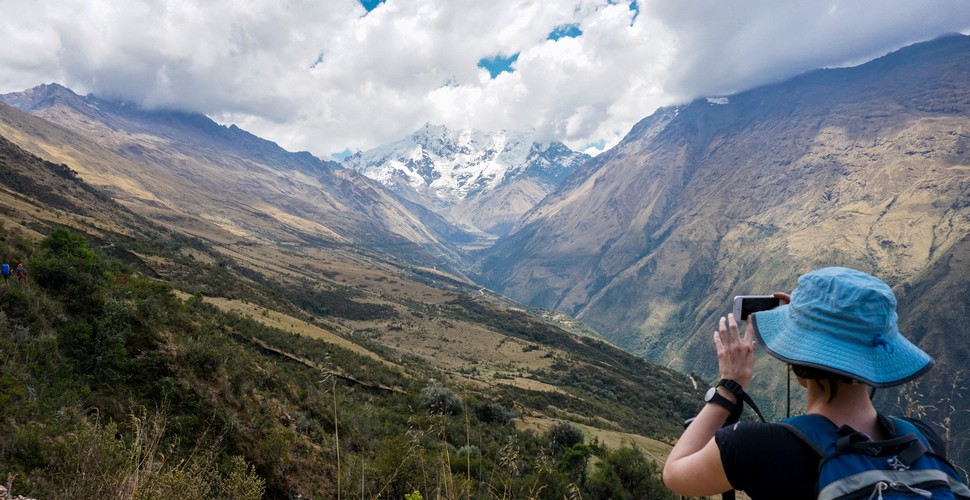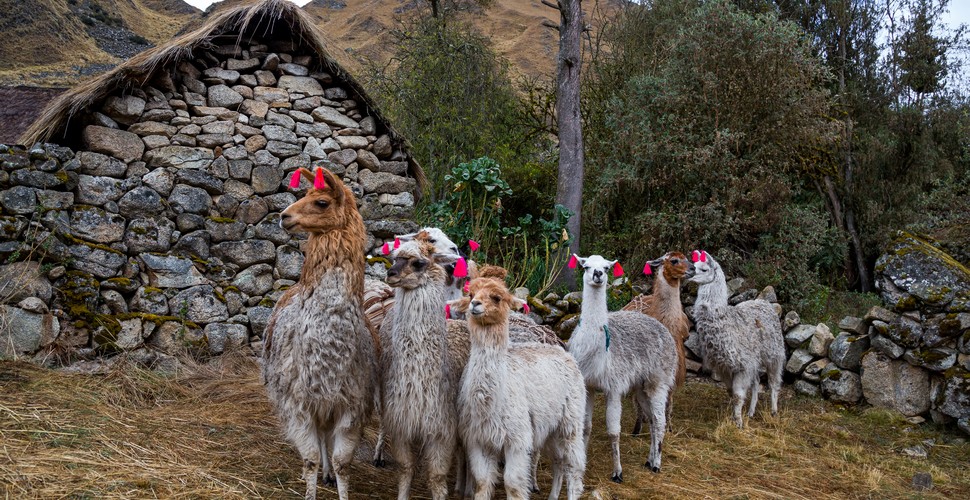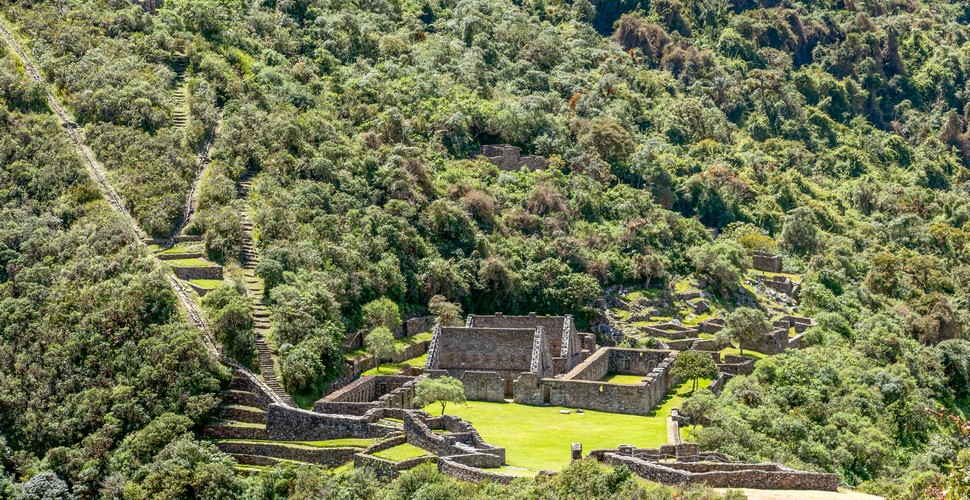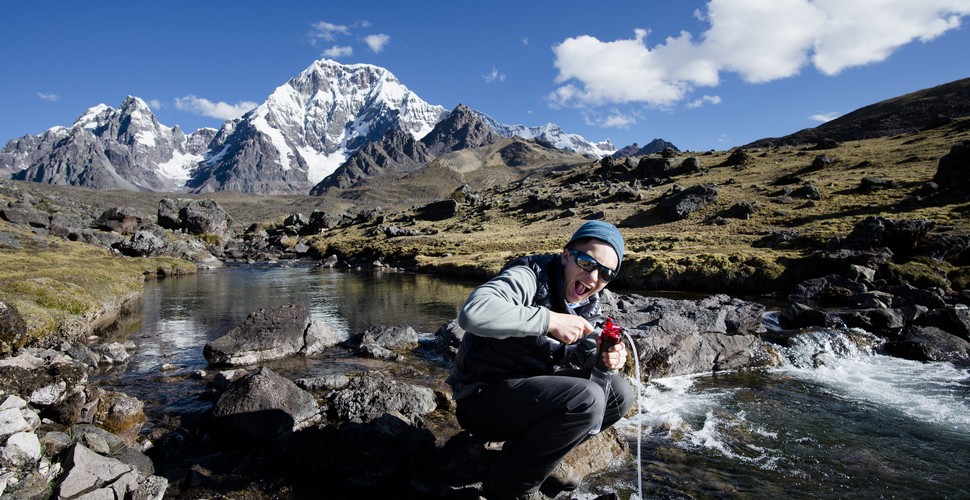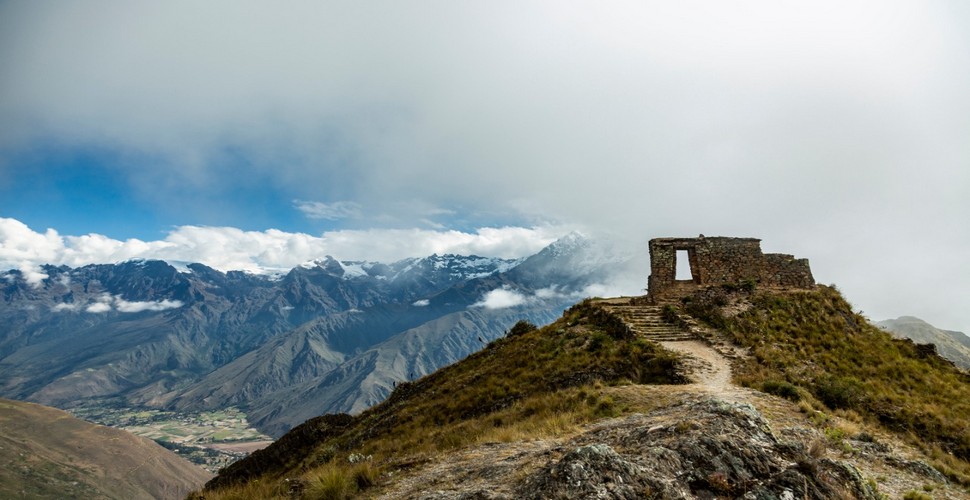
Inca Trail Permits and Availability - Is There Space for Your Dates?
Inca Trail Availability Live!
CHOOSE YOUR INCA TRAIL DATES HERE!
To hike the World-Famous Inca Trail to Machu Picchu, you will need a special permit. This includes both the Classic Inca Trail Trek (4 days) and the Short Inca Trail (2 days). Every Inca Trail permit will include an entrance ticket to Machu Picchu.
Important Information For Inca Trail Bookings
Why You NEED An Inca Trail Permit
The Peruvian government introduced the Inca Trail Permit System to help preserve this original Inca Trail. The idea is to avoid overcrowding, overuse, and a negative impact along this iconic trekking route along the historic Inca Trail. A restricted number of permits are issued each day, limiting the amount of foot traffic on the Inca Trail at any given time. Permits are required for all trekkers, including Inca Trail hikers, porters, and guides. The Inca Trail to Machu Picchu, which is hiked by many today, is the original Inca Trail, which formed a section of the Qapaq Ñan (The Inca Road Network). It was built in the 15th century by the Incas to specifically arrive at the remote Machu Picchu. The Inca Trail enters Machu Picchu through the iconic Sun Gate.
Inca Trail
Book In Advance!
The best way to secure your preferred dates is to book in advance! This can be up to 1 year ahead of time for high season dates! By booking in advance, you will have a better chance of securing permits for your dates.
Almost at The Top! - Dead Woman´s Pass
When To Trek The Inca Trail
High Season For Trekking
High season runs from May to August, which coincides with the dry season and optimum trekking conditions. This season generally has more people on the trek and at Machu Picchu. This is because the weather is generally dry, allowing for spectacular views. It's also nicer to trek (and camp!) in dry weather, right?
Shoulder Season
Shoulder Season is also a great time to hike the Inca Trail. April, September, and October (either side of the dry season) are also great dates to book your Inca Trail. There is more of a possibility of rain showers during these months, however, they are usually short-lived.
*Top Tip: April is generally greener, coming after the rainy season. The valleys and surrounding mountains will be lush and green after 5 months-ish of rain! This makes for a stunning trekking experience!
Low Season (Rainy Season)
The Inca Trail is closed throughout February and sometimes even into March. This is for maintenance and conservation. February receives heavy downpours in the Andes, and the Inca Trail is closed. Sometimes the rains actually drag on into March, which delays the re-opening of the Trail. For example, in 2025, the Inca Trail reopened on the 31st of March!
Inca Trail Campsite
The Daily Permit Limit Along The Inca Trail
Classic Inca Trail Trek (4 days): 500 spaces daily (including porters, cooks, and guides).
Short Inca Trail Trek (2 days): 250 spaces daily (including guides or assistants).
Chachabamba On The Short Inca Trail
Information About The New Machu Picchu Circuits (2025 Onwards)
Of course, the final destination of the Inca Trail is Machu Picchu! It is important to note that since the beginning of 2025, Machu Picchu has 3 defined circuits to hike. The Machu Picchu permit included in the Inca Trail permit is circuit 3. You will not be allowed to hike the other circuits unless you purchase a separate Machu Picchu entrance ticket!
The good news is that you still get to take the classic photo and still see the higher sections of the site as you walk down from the Sun Gate and into Machu Picchu 😊These can only usually be visited if you purchase a Circuit 1 Machu Picchu entrance.
Important* You will need an extra Machu Picchu Entrance Ticket to hike the Huayna Picchu Mountain or Machu Picchu Mountain. This has always been the case for Inca Trail Trekkers. This should be reserved at the time of booking your Inca Trail. Ask us here for more information.
Check out our article about the different Machu Picchu circuits here.
For visitors choosing the Salkantay Trek, Choquequirao Trek, Ausangate Trek, or the Lares Trek, the Machu Picchu visit is on the final day. You can choose Circuit 2 or 3, subject to availability, at the time of booking!
Circuit 2B At Machu Picchu
Inca Trail Treks – Which One Should You Choose?
While our most popular trek is the Classic 4-Day Inca Trail Trek to Machu Picchu, we have Inca Trail trips that range from 2 days to 7 days. Check our Inca Trail options below and choose the Inca Trail trek that is best suited to you!
Classic Inca Trail - 4 Days (Group Tour)
Classic Inca Trail - Premium 4 Days (Private Tour)
Classic Inca Trail Trek to Machu Picchu - 5 Days (Group Tour)
Short Inca Trail to Machu Picchu - 2 Days (Group Tour)
Inca Trail Express to Machu Picchu - 5 Days (Group Tour)
Hike The Inca Trail To Machu Picchu - 7 Days (Group Tour)
Salkantay & Inca Trail to Machu Picchu - 7 Days (Group Tour)
Salkantay and Short Inca Trail Trek - 6 Days (Group Tour)
Luxury Inca Trail - 4 Days (Private Tour)
Read our “All You Need to Know about Hiking the Inca Trail to Machu Picchu”
Setting off on The Inca Trail!
Valencia Travel Excels at Securing Inca Trail Permits!
Valencia Travel has an excellent track record in securing Inca Trail permits for Machu Picchu trekking trips. This is because we keep our trekkers informed of the procedures necessary to secure Inca Trail Permits and how things work with the issuing organization. This ensures that our trekkers reserve as soon as possible to secure their preferred dates. Often, our travelers reserve before the permits even go on sale! In this way, we can secure the perfect dates for our trekkers! For certain dates in High Season, it is necessary to book even a year in advance!
Valencia Travel Inca Trail Porters
FAQs About The Permits For The Inca Trail to Machu Picchu
Why Do I Need A Permit to Trek The Inca Trail?
The Inca Trail is one of the world’s most popular adventure travel experiences. To help protect the trail from its over-popularity and over-trekking, a permit system was introduced to limit the number of people on the trail to 500 a day. The ‘500 people a day’ doesn’t just include trekkers, it also includes cooks, porters, and guides. This is why you need to book your Inca Trail trip very early.
Where Do I Get An Inca Trail Permit From?
Only approved tour operators, like Valencia Travel, can obtain an Inca Trail permit. As part of our all-inclusive trip pricing, the cost of the permit is already included in the tour cost.
Which Months Are The Hardest To Get A Permit?
The most popular time to hike the Inca Trail is between May and August, with permits for May and June selling out within days, sometimes hours, once released. So, if you have your heart set on doing the classic 4-day trek or joining any section of the legendary Inca Trail to Machu Picchu, be sure to book well in advance. This is important to get a permit for your desired travel dates.
Pondering Wiñay Wayna
When Should I Book My Inca Trail Trek?
At least 6-12 months in advance. The earlier you book, the better the chance of securing a permit. Valencia Travel has many years of experience offering high-quality, fully supported walking tours in Peru. Don't leave your Inca Trail experience to chance; join us on one of the greatest treks in the world!
Can I Trek To Machu Picchu Without a Permit?
Yes, you can, but unfortunately not along the Inca Trail! If you want to avoid this popular trail and discover lesser-trekked routes, there are other options that trek through lush valleys, alpine lakes, and snow-capped peaks before reaching the stunning views of Machu Picchu. Our Salkantay Trek to Machu Picchu takes travelers on a wilder route with stunning scenery. Or maybe you prefer to visit more varied trails away from the crowds, which take you to other spectacular Inca Ruin sites, such as Choquequirao.
Admiring The View
How Many Inca Trail Permits Are Available Each Year?
- Only 500 total permits are available each day for trekking the Inca Trail to Machu Picchu.
- Of these 500 Inca Trail permits, 300 permits are allowed for support staff such as guides, porters, and cooks, and the other 200 permits are reserved for all paying hikers.
- You can only hike the Inca Trail with a licensed tour operator (such as Valencia Travel).
- Entrance points and campsites are pre-determined on your Inca Trail permit and are enforced at each control checkpoint.
- Permits are non-refundable and non-transferable. Dates and names cannot be changed.
- All Inca Trail Permit regulations are monitored by the Peruvian government, not by trekking agencies.
* Important Note: The Inca Trail to Machu Picchu is closed every February for maintenance. This is because February is the wettest month of the rainy season in Peru. This also helps reduce the amount of damage caused to the trail by trekking in wet conditions. It is also one of the less-visited months of the year by tourists and trekkers to Peru.
Inca Trail Steps
Types of Inca Trail Permits: Which Treks To Machu Picchu Require An Inca Trail Permit?
There are two types of Inca Trail permits:
- Classic Inca Trail Permit: This permit allows you to hike the entire 4-day Inca Trail Trek to Machu Picchu, experiencing the full beauty of the Inca Trail and its remarkable archaeological sites.
- Short Inca Trail Permit: This permit is for those who want to complete the shorter 2-day Inca Trail Express trek, starting from KM 104 and concluding at Machu Picchu. This option is perfect for families who don´t want to miss out on the Inca Trail experience! (Find out more about a Family Inca Trail here!
Orchids on The Inca Trail
What Happens If There Are No Inca Trail Permits For Your Preferred Dates?
If you don’t get a permit for your preferred date, the good news is that you have a few other options. At the time of booking your Inca Trail adventure, we will ask you for 2 alternative dates in order of preference. This dramatically improves your chances of being able to hike the Inca Trail trek to Machu Picchu during your time in Peru. Be sure to have three possible dates for hiking the Inca Trail in mind when you start your booking process, and we will access the government site and try to secure your Inca Trail permits in order of date preference
The Other Side of Dead Woman´s Pass
Are There Alternative Inca Trail Treks?
If you cannot secure Inca Trail permits for your trek to Machu Picchu, don't worry! There are also several alternative Inca Trail treks that you can also consider to reach the iconic Machu Picchu. Each of these Machu Picchu Treks offers unique experiences and beautiful landscapes. Here is our choice of some awe-inspiring and spectacular alternatives to the Inca Trail.
The Salkantay Trek To Machu Picchu
Distance: 32 miles (51 km)
The Salkantay Trek is a spectacular alternative Inca Trail when permits are sold out for the Inca Trail. When it comes to Andean landscapes, you couldn’t ask for more, and the Salkantay trek covers several Andean microclimates. First, trekkers climb up into the alpine tundra facing the imposing Apu Salkantay. Then you descend into subtropical cloud forest as you approach Machu Picchu. The vibrant blue-green Humantay Lake also sits along the trail, as well as the Inca ruins of Llactapata. Trekkers will also enjoy soaking in hot springs at Santa Teresa and enjoying locally grown, freshly roasted, and brewed coffee.
The Salkantay trek takes five days. The first four days are full trekking days, while the fifth day is a visit to Machu Picchu. The Salkantay Trek ends at Aguas Calientes, where you can hike the train tracks into Aguas Calientes or take the daily train. You will spend the night in a hotel before you visit Machu Picchu. The Salkantay to Machu Picchu Trek is the second most popular alternative trek to Machu Picchu, after the Inca Trail.
Salkantay Alternative Inca Trail
The Lares Trek To Machu Picchu
Distance: 21 miles (34 km)
The Lares trek is one of the best treks in Peru for hikers who are also culture enthusiasts. It winds through the Sacred Valley, passing through Andean villages and llama herds. In fact, it is even nicknamed the “Weaver’s Route” for the traditions of textiles of the area. On top of cultural heritage, Lares boasts incredible mountain views and even some hot springs. Most consider the Lares Trek to Machu Picchu to be a moderate trek. However, it’s still at high elevation, reaching higher elevations than the Inca Trail to Machu Picchu, which can be tough if you’re not well acclimatized. This trail is another alternative to the Inca Trail but ends far from Machu Picchu. On the third day of the trek, you will finish in Ollantaytambo, where you take the train to Aguas Calientes. Here, you will spend the night in a hotel before you make the trip to Machu Picchu. On the fourth day, you can take the shuttle bus up to the Machu Picchu entrance. You will then be able to tour the Inca citadel of Machu Picchu with your guide. If you missed out on the Inca Trail permits and still dream of hiking through the Sun Gate to Machu Picchu, it’s still possible! You can combine the first two days of the Lares Trek with the 2-day Inca Trail Express. This way, you can experience both of these incredible Peru treks to the iconic Machu Picchu.
Llamas on The Lares Trek
The Choquequirao Trek
Distance: 28 miles /45km
Authentic and remote, the Choquequirao trek is the more challenging and isolated alternative to get to Machu Picchu. This alternative Inca Trail trek is for hikers seeking a route steeped in Inca history and up for a true Andean adventure! Located in the Apurimac Valley, this archaeological site, whose name means "cradle of gold” in Quechua, is believed to be three times bigger than its famous sister city of Machu Picchu and can only be reached on foot. The starting point is from the village of Cachora, walking to the Capuliyoq pass, from where trekkers descend into the Apurimac Canyon. Terraced farmlands on the edge of the canyon’s river eventually give way to an exhilarating shift from vertical desert to high-elevation jungle as hikers ascend to the site. Finally, after reaching 10,000ft above sea level (3050m), hikers can appreciate the impressive view of the magnificent ruins. It is estimated that half of the site of Choquequirao has been excavated, and today there are 12 visible sectors across three hilltops that can be seen with the added bonus of very few, if any, other visitors to the archaeological site. You can also hike the 9-day Choquequirao Trek to Machu Picchu, which is a remote and challenging trek allowing Choquequirao ruins exploration, diverse landscapes, and cultural immersion along the way. This trek ends at Machu Picchu after a scenic train journey to Aguas Calientes, where you will spend the night. The final section of this longer Choquequirao hike will take you to the mystical archeological site of Machu Picchu on the final day.
Choquequirao
The Ausangate Trek To Machu Picchu
Distance: 43 miles (73 km)
The Ausangate Trek is one of the best off-the-beaten-path treks in Peru for nature and spectacular mountain scenery. The Ausangate trail is remote and boasts spectacular and untouched Andean scenery. Highlights include the snow-capped peaks, glaciers, jewel-toned lakes, and traditional Andean villages. There is also the option to add an extra day to visit the famous Rainbow Mountain, Vinicunca. Thanks to mineral deposits in its soil, this mountain has natural rainbow colors, more visible now that the snow caps have melted.
However, trekkers should keep in mind that this is one of the more difficult Peruvian treks due to the high elevation, reaching a high point of 5,120 meters. With tour options ranging from four days to six, it’s best to pick a longer tour if you’re not an experienced hiker. This will give you more time to rest along the trail and better enjoy the impressive landscape. If you don’t have time for a multi-day trek, you can spend a full day hiking to the top of Rainbow Mountain. To get to Machu Picchu, you will need a transfer from the end of the Ausangate Trek to Ollantaytambo to take the train to Aguas Calientes for the final leg of the journey to the magnificent Machu Picchu. Valencia Travel includes this service in their Ausangate, Rainbow Mountain to Machu Picchu - 10 Days trek.
Ausangate Region
The Moonstone Trek To Machu Picchu
Distance: 24 miles (38 ½ km)
This incredible trek is somewhat of a secret and is perfect for those who want to trek in areas that are more remote and off the beaten track. The trail leads to the magnificent Quillarumiyoc site, which was an ancient Inca temple of a water cult in honor of the moon. Then you will head to the Inka quarry of Cachicat, where the stones were taken to build other more famous Inca sites. The Moonstone Trek to Machu Picchu offers spectacular landscapes, remote rural communities, Inca aqueducts, "chullpas" (funeral towers), and a sun gate along an original Inca Trail to Machu Picchu as you head to the main attraction of Machu Picchu.
Inti Punku - Moonstone Trek to Machu Picchu
Remember to plan ahead and book your alternative Inca Trail trek with a reputable tour operator like Valencia Travel for your Peru adventure trip. Also, consider the level of difficulty, duration, and your personal interests when choosing an alternative trek to Machu Picchu. Whichever route you choose, you'll still have the chance to experience the natural beauty and archaeological wonders of the Peruvian Andes while ultimately reaching the awe-inspiring Machu Picchu. As you can see, there are a number of alternatives for your alternative Inca trail and Machu Picchu tour.
Inca Trail Overview
Still Have Questions About The Inca Trail Permits? Contact us here!


